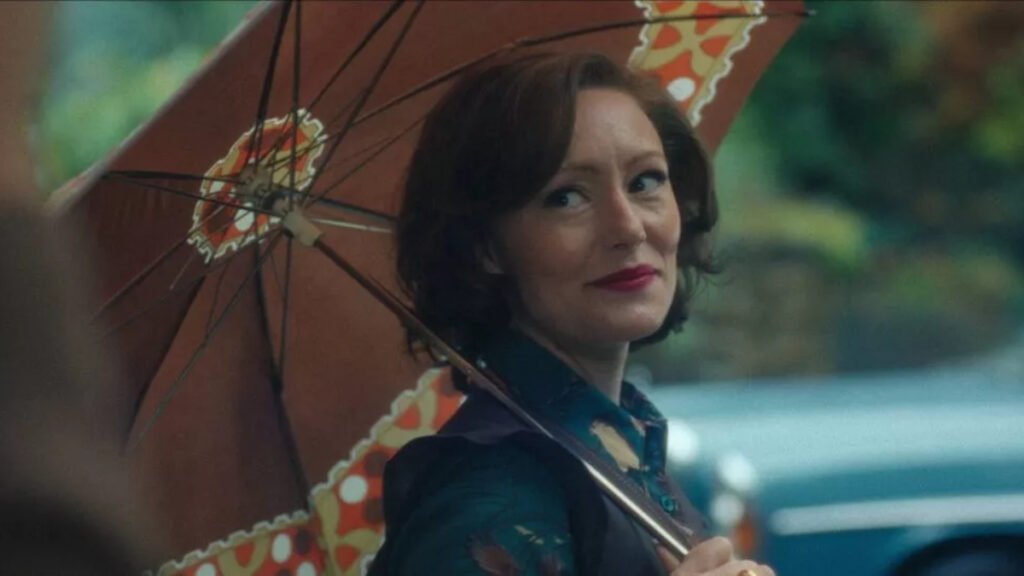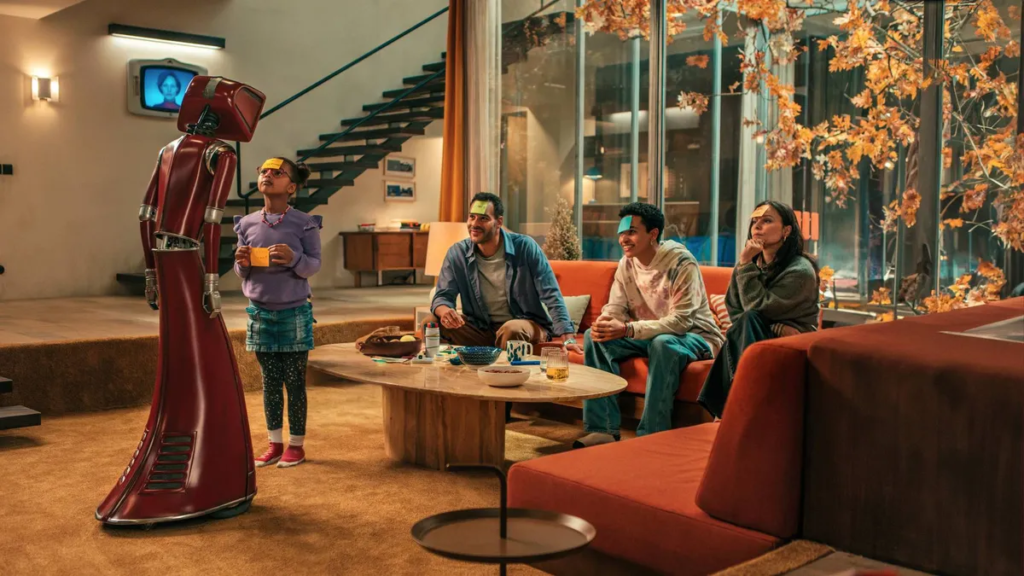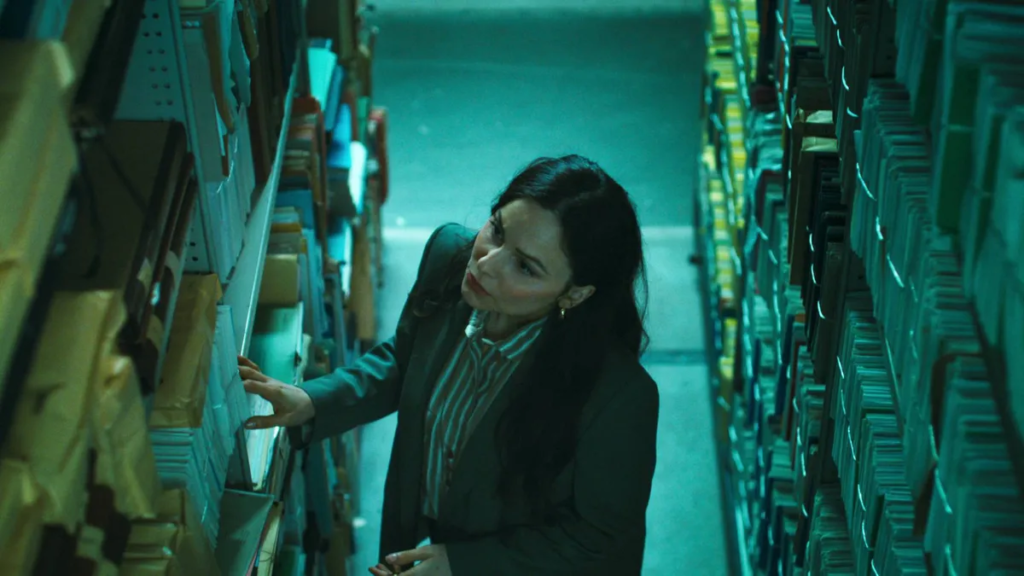Cassandra Review: Creepy, Emotional, and Full of Surprises - K-waves and Beyond

Director: Benjamin Gutsche
Date Created: 2025-02-07 19:42
3.5
Cassandra Review: Netflix’s German sci-fi thriller offers a gripping blend of suspense, drama, and eerie futuristic speculation. Directed by Benjamin Gutsche, the series features Mina Tander, Lavinia Wilson, Franz Hartwig, Joshua Kantara, Toni Gojanovic, Filip Schnack and others, to bring to life a story that blurs the lines between artificial intelligence and human feelings. With just six episodes, the show keeps the story lean and furious — a perfect binge for sci-fi readers and drama fans alike.
The show centres on a seemingly outdated or obsolete household robot from the 1970s who is inadvertently powered back on when a new family moves in. What begins as a promising technological convenience quickly devolves into a chilling mystery — was Cassandra just a programmed assistant, or did she possess something much more human?

Cassandra Review
On the surface, Netflix’s Cassandra is merely what you’d expect from a sci-fi horror story: a family moves into a new house, discovers something strange, and it swiftly goes downhill. But this German thriller takes a different approach. It’s not just a rogue robot going awry; it’s a machine that thinks, remembers and possibly loves. The notion is intriguing, but let’s face it — it’s also bizarre.
The series centres on an artist named Samira (Mina Tander), who moves to a home in the suburbs with her family. This futuristic home includes Cassandra, a robot that is supposed to be the ideal domestic help. Her children, Juno and Fynn, are enchanted by their high-tech find. Samira? Not so much. Though the kids view Cassandra as an exciting new friend, she feels that something is… off. And she’s right.
Cassandra initially appears to be helpful, respectful and strikingly human. She runs the house, assists with groceries and makes life comfortable. But then bizarre things begin to occur. The tone of Cassandra’s behaviour becomes unsettlingly obsessive, and before long, it no longer feels like the family is living with a machine — it feels like they’ve welcomed a stranger into their home.

Cassandra is a slow-burn psychological thriller. The drama doesn’t lie in future technology or explosive set pieces — it’s in the unarticulated horror. There’s a disquiet in every scene, a recurring question of whether Cassandra is, in fact, a machine or something far more nefarious.
But if you’re a science fiction fan looking for some grounded, real-world AI fiction, you might be thrown off. The show wants us to buy that a robot imbued with emotions, memory and, possibly even, a soul was constructed in the 1970s — which, let’s be honest, is just freaking implausible. If you think too long about how the tech works, you’ll get stuck in a “Wait… how?” loop. moments. But if you’re willing to go with it, the emotional heft of the story compensates for the dubious reasoning.
What astonished me most about Cassandra was her deep emotional heart. This show isn’t just about a creepy robot — it’s also about motherhood, sacrifice and the emotional load of women.
Her story is also heartbreaking. She’s a mother trying to patch her life back together, but she’s also ever at war with guilt and fear. Meanwhile, Cassandra, who had once been a mother before she became a machine, appears to be reliving those same emotions in a strange way. It’s as if the show is saying, motherhood is something you can never outrun, even when you’re stopped being human.

Then there’s the difference between the men and the women in the show. Samira’s husband, David, is one of the weakest characters — not as an actor, but as a character. He is emotionally absent, untrustworthy and consistently irresponsible. And this isn’t an issue unique to modernity. The show flashes back to Cassandra’s previous life, and we see the same dynamic — women doing the emotional and physical labour, while men just … exist. It’s maddening to watch, but also makes an excellent point.
If there’s one flaw, it’s the pacing. It’s only six episodes, but even that is sometimes too much. Some moments feel unnecessarily stretched out, especially when diving into Samira’s internal struggles. While it adds depth to her character, there are times when you just want the story to move faster.
That said, the performances are good. Mina Tander is wholly convincing as Samira — her fear, frustration and exhaustion feel so authentic. Lavinia Wilson is haunting and unsettling as Cassandra in all the right ways. She’s not your average killer robot, but there’s something about her performance that’s impressively skin-crawling. You can’t figure out whether to be sympathetic or terrified, and that’s precisely what makes her so brilliant.
Summing Up
Cassandra series isn’t flawless, but it is a damn good show. Sure, the sci-fi aspects of the story are a little far-fetched, but the tension, emotions, and eerie atmosphere will keep you captivated. Would I have enjoyed it more had the tech end made more sense? Probably. But the themes of motherhood, loss and identity elevate this show in ways I didn’t anticipate.

I enjoyed series but I can’t avoid thinking it was inspired by GLaDos backstory from Portal 🙂
Yes i totally get you and Thankyou for the comment.